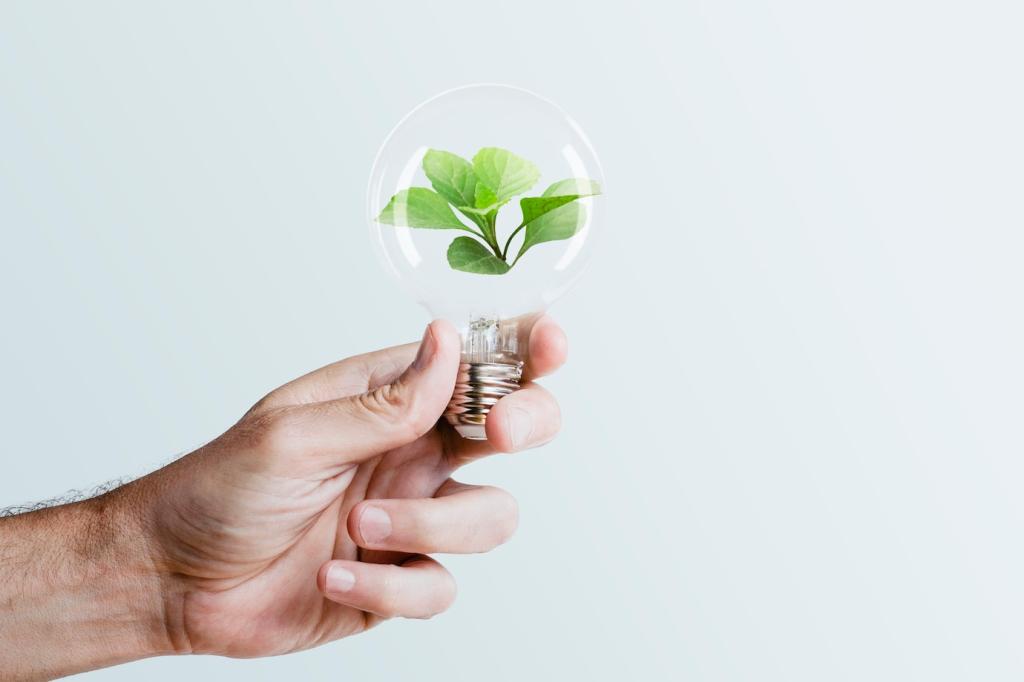Green Technology Advancements
Green technology is revolutionizing the way society interacts with the environment, striving for sustainable solutions that balance human progress with nature’s preservation. As concerns over climate change and environmental degradation deepen, innovative advancements in green tech are creating opportunities to transition towards a cleaner, more resilient future. From renewable energy breakthroughs to eco-friendly materials, green technology is at the core of global efforts to achieve sustainability without compromising quality of life or economic growth.
Recent breakthroughs in solar panel efficiency and affordability have transformed solar power into an accessible energy source for a broad range of consumers. New materials, like perovskite solar cells, are making panels lighter, more flexible, and significantly more efficient, breaking the barriers that once limited widespread adoption. Coupled with scalable solar farms and residential installations, these advances are allowing communities to harness the sun’s energy on both small and large scales, leading to substantial reductions in energy bills and carbon footprints.
Renewable Energy Innovations
Sustainable Transportation Solutions
Electric Vehicle Ecosystem
Electric vehicles (EVs) have become a cornerstone in the push towards greener transportation. Thanks to significant investments in research and development, EVs now offer faster charging times, longer driving ranges, and enhanced affordability. The growing network of public charging stations and integration of renewable energy sources make owning and operating EVs more convenient than ever before, incentivizing widespread adoption by consumers and businesses. This ecosystem’s expansion is instrumental in cutting tailpipe emissions and reducing the overall carbon footprint of the transportation sector.
Alternative Fuel Innovations
While electrification is a major trend, alternative fuels are playing a crucial role in sectors where batteries may not be practical. Biofuels, hydrogen, and synthetic fuels offer cleaner-burning options that can significantly reduce emissions from aviation, maritime, and heavy-duty vehicles. Advances in feedstock processing, carbon capture, and hydrogen production are making these fuels more efficient and sustainable. These innovations are also revitalizing existing infrastructure by allowing internal combustion engines to become greener through simple fuel switching.
Smart Mobility and Public Transit
Smart mobility initiatives are transforming urban transit through data-driven systems and eco-conscious design. Public transportation networks are utilizing electric buses, hybrid trains, and advanced scheduling software to optimize routes and streamline traffic flows. Mobility-as-a-service platforms integrate multiple transit options, encouraging shared rides and reducing congestion. As cities embrace these green technologies, commuters benefit from cleaner air, quieter streets, and improved access to efficient, sustainable travel options.
Green Building and Construction
Advancements in building design leverage smart systems and passive architectural strategies to drastically reduce energy consumption. High-performance insulation, advanced ventilation, and integrated sensor networks allow structures to maintain comfortable indoor climates with minimal energy input. These designs take advantage of natural light and airflow, strategically minimizing reliance on artificial heating and cooling. By embedding sustainability into the earliest stages of planning, architects and engineers are delivering buildings that support both environmental responsibility and occupant well-being.
Circular Economy Progress
Product Life Extension
Designing products for longevity, repairability, and upgradability is gaining traction as part of the circular economy movement. Manufacturers are increasingly considering a product’s entire lifespan, embedding features and materials that facilitate repair or refurbishment. This proactive approach encourages consumers to keep products longer, reducing demand for raw materials and minimizing waste. Supportive frameworks—like right-to-repair legislation—further empower individuals and businesses to participate actively in extending product lives.
Closed-Loop Manufacturing
Closed-loop manufacturing systems aim to eliminate waste through continuous recycling of materials within production processes. Companies deploy advanced sorting, separation, and remanufacturing technologies to reclaim resources from used products or industrial byproducts. By reintegrating these materials to create new goods, manufacturers reduce reliance on virgin inputs and curb environmental impacts associated with extraction and disposal. These systems represent a significant evolution from linear supply chains towards sustainable, resource-responsible models.
Waste-to-Resource Innovations
Innovative green technologies are finding new value in items traditionally considered waste. Through chemical recycling, composting, and energy recovery, materials like plastics, organic matter, and electronic waste are transformed into raw ingredients for new products or clean energy. These processes are becoming increasingly efficient, enabling communities to divert large volumes from landfills and lessen pollution. The integration of waste-to-resource systems supports both environmental and economic growth by maximizing the potential of every material.

Clean Water and Pollution Control
Water Purification Technologies
Advanced water purification solutions, such as membrane filtration, ultraviolet disinfection, and nanotechnology-based systems, are providing clean water for communities and industries. These methods are able to remove contaminants, pathogens, and microplastics with greater efficiency and at lower costs than ever before. Compact, modular systems make it possible to deploy water treatment in remote locations, disaster areas, or places lacking traditional infrastructure. As a result, safe drinking water is becoming more accessible and sustainable.
Industrial Pollution Abatement
Industries are embracing cutting-edge pollution control technologies to minimize their environmental impact. Real-time monitoring systems track emissions and effluents, allowing for instant adjustments to stay within regulatory limits. Innovations like biofilters, catalytic converters, and chemical capture techniques trap harmful substances before they escape into the air and water. These approaches are critical for protecting ecosystems, improving public health, and enabling sustainable industrial growth.
Smart Water Management
The adoption of smart sensors and data analytics is reinventing water distribution and usage. Leak detection networks, automated irrigation, and predictive maintenance systems are reducing wastage and optimizing water use in agriculture, cities, and industry. Real-time data empowers operators to respond quickly to potential issues, safeguarding supplies while conserving energy and resources. Such technological integration is fundamental to achieving long-term water security and pollution prevention.

Precision Farming Techniques
Precision farming harnesses satellite imagery, drones, and IoT devices to monitor crop health and manage resources more effectively. Farmers can target water, fertilizer, and pesticide application according to real-time data, boosting efficiency and reducing environmental impact. Geographic information systems help anticipate weather patterns and disease outbreaks, supporting timely interventions. These technologies empower farmers to achieve higher productivity with less waste, ultimately contributing to more sustainable food systems.
Vertical and Urban Farming
Innovative vertical and urban farming models are redefining agriculture in densely populated areas. These systems stack crops in controlled environments, using hydroponics, aeroponics, and LED lighting to maximize space and resource efficiency. By shortening supply chains and reducing transport emissions, vertical farms provide fresh, local produce even in cities. These methods also recycle water and nutrients, yielding high-quality food with a minimal ecological footprint, and offer a sustainable alternative to traditional agriculture.
Food Waste Reduction Technologies
Food waste is a significant environmental issue, and technology is playing a key role in addressing it. Smart inventory management, spoilage sensors, and food sharing platforms are helping businesses and consumers track and optimize usage. Technologies that turn food scraps into bioenergy or compost further curb waste and create value from leftovers. These solutions not only reduce landfill burdens but also enhance food security by ensuring more of what’s produced actually reaches people.
Join our mailing list
